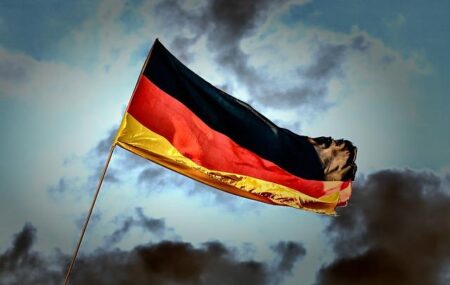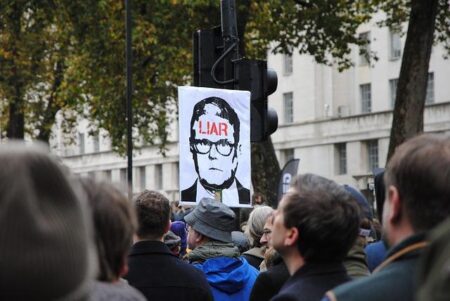French President Emmanuel Macron announced that France will officially recognise Palestine as a state in September, marking a significant development in the longstanding Israeli-Palestinian conflict. This declaration, made during a recent diplomatic engagement, signals a potential shift in France’s foreign policy and could influence the broader international approach to Middle East peace negotiations. The move comes amid ongoing tensions in the region and calls for renewed efforts towards a two-state solution.
Macron Announces France’s Planned Recognition of Palestine as a State in September
French President Emmanuel Macron has announced that his government intends to formally recognise Palestine as a sovereign state by September, marking a significant shift in France’s diplomatic stance in the Middle East. This move comes amid escalating tensions between Israel and Palestine, and reflects growing calls within Europe to support Palestinian statehood as a means to revive stalled peace negotiations. Macron emphasised the need for a balanced approach, urging both sides to engage in dialogue and respect international law to achieve a lasting resolution.
The decision is expected to prompt varied reactions on the global stage. Supporters view France’s planned recognition as a strong signal backing Palestinian self-determination, while critics caution it could complicate France’s relations with Israel and impact regional diplomacy. Key highlights of France’s upcoming policy shift include:
- Official recognition date: Planned for September 2024.
- Focus on peace talks: Macron calls for renewed negotiations based on the two-state solution.
- Diplomatic balancing: France aims to maintain constructive ties with both Israel and Palestine.
| Aspect | France’s Position | Implications |
|---|---|---|
| Recognition | State of Palestine | Strengthens Palestinian diplomatic status |
| Peace Process | Supports two-state solution | Encourages renewed negotiations |
| International Relations | Maintains ties with Israel | Balances regional diplomacy |
Implications for Franco-Israeli Relations and Middle East Diplomacy
France’s announcement to recognise Palestine as a state marks a significant shift in its foreign policy, inevitably testing the resilience of Franco-Israeli relations. While Paris has long been viewed as a key mediator in Middle Eastern diplomacy, this move may lead to heightened diplomatic friction with Israel, which has historically opposed unilateral recognitions. French officials will need to navigate a complex landscape, balancing support for Palestinian statehood against longstanding security and economic ties with Israel. This development could prompt a reassessment of bilateral cooperation in areas like intelligence sharing, defense partnerships, and trade.
- Increased diplomatic strain: Possible protests or political pushback from Israeli authorities.
- European influence: France potentially spearheading a broader EU initiative on Middle East peace.
- Policy recalibration: Re-examination of military aid and joint exercises with Israel.
| Aspect | Potential Impact |
|---|---|
| Diplomatic Relations | Temporary cooling with Israel; closer ties with Palestinian authorities |
| EU Leadership | France may push for a cohesive European stance on state recognition |
| Security Cooperation | Possible reevaluation of intelligence sharing protocols |
Beyond the bilateral dimension, this decision signals France’s intention to assert a more independent and proactive role in shaping the Middle East peace process. By formally recognising Palestine, Paris can inject renewed momentum into stalled diplomatic efforts, potentially encouraging other nations to follow suit and redefining negotiation frameworks. However, this risk brings complexities, as regional actors may perceive the move differently – some as a breakthrough towards justice, others as exacerbating tensions. Consequently, France will be challenged to maintain open dialogue channels with all parties to foster a constructive environment conducive to lasting peace.
Experts Urge Strategic Engagement and Coordinated International Support for Peace Process
Amid rising geopolitical tensions, international analysts emphasize the necessity for a robust and multifaceted approach to the Middle East peace process. Experts contend that unilateral moves, even those with significant symbolic weight, must be accompanied by a concerted and multilateral framework to ensure lasting impact. This entails coordination among global powers, regional actors, and relevant organizations to foster dialogue, prevent escalations, and lay the groundwork for sustainable peace.
Key elements of strategic engagement include:
- Consistent diplomatic channels to maintain communication and trust-building among parties.
- Inclusive peace negotiations encompassing all stakeholders to address root causes and grievances.
- Targeted international support aimed at socio-economic development and humanitarian relief to strengthen stability.
- Monitoring mechanisms to ensure compliance with agreements and prevent violations.
| International Actor | Role in Peace Process | Potential Contribution |
|---|---|---|
| United Nations | Mediator and peacekeeper | Monitor ceasefires and facilitate talks |
| European Union | Diplomatic support and aid provider | Funding development projects |
| United States | Key political broker | Facilitate direct negotiations |
| Regional States | Influence on stakeholders | Encourage local conflict resolution |
To Wrap It Up
As France moves closer to formally recognising Palestine as a state, a significant shift in European diplomatic policy appears imminent. President Emmanuel Macron’s announcement signals a potential recalibration of France’s stance in the Israeli-Palestinian conflict, aligning with broader international calls for renewed dialogue and peace efforts. The coming months will be closely watched by global leaders and stakeholders, as the move could influence regional dynamics and the future of peace negotiations in the Middle East.




